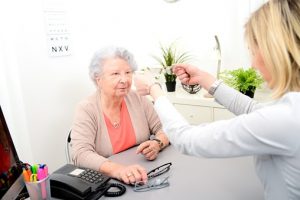
Studies have revealed that women are at a higher risk of developing common vision-related problems than men. For AMD cases, women trump men and make up 65 percent of most cases. And for glaucoma and cataracts, they make up 61 and 66 percent of cases respectively. But what is it about being a woman that increases your risk of vision problems? Researchers have a few theories.
For starters, women typically live longer than men, and because many eye-related problems are age-related, that increases their risk. Secondly, conditions like dry eyes are most common among women. Lastly, economic factors and access to eye care can also contribute to women’s risk of developing vision problems.
Women are generally more prone to autoimmune diseases than men and many of these autoimmune diseases can affect vision as well, which is another contributing factor to vision problems among women. Lastly, hormonal changes like pregnancy and menopause can also contribute to changes in vision.
Whether you’re a female or male, you will want to pay extra attention to your vision and take the following precautions to reduce your risk of vision problems.
- Go for annual eye exams after the age of 40
- Know your family history of vision-related problems — some eye diseases can be hereditary
- Eat healthy, as your eyes require nutrients from your diet in order to function properly
- Don’t smoke or stop smoking
- Wear sunglasses
- Wear protective eyewear when working
- Perform daily eyecare hygiene by safely removing debris and bacteria
- Control underlying medical conditions like diabetes and hypertension as they can negatively impact your vision
Although many eye conditions can be treated, your best defense is prevention, so focus on maintaining healthy vision as much as possible.
Related:
- How to improve vision: 11 home remedies to improve eye health
- Visual snow: Why there is snow or television-like static in your vision?
- Yoga for eyes: Easy eye yoga poses to improve vision